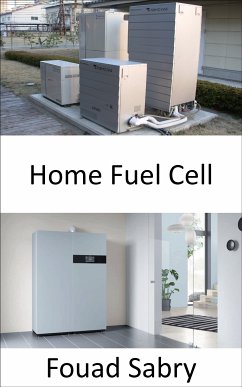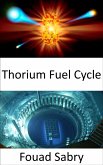What Is Home Fuel Cell
An electrochemical cell may be used for either main or backup power production, and a house fuel cell or residential fuel cell is one such cell. They are comparable to the bigger industrial stationary fuel cells, however they are constructed on a more modest size for usage in domestic settings. In most cases, the technology behind these fuel cells is known as combined heat and power (CHP) or micro combined heat and power (Micro-CHP), and it allows them to produce not just electricity but also warm water or air.
How You Will Benefit
(I) Insights, and validations about the following topics:
Chapter 1: Home fuel cell
Chapter 2: Electricity generation
Chapter 3: Distributed generation
Chapter 4: Photovoltaics
Chapter 5: Cogeneration
Chapter 6: Micro combined heat and power
Chapter 7: Thermophotovoltaic
Chapter 8: Microgeneration
Chapter 9: Renewable heat
Chapter 10: Ground source heat pump
Chapter 11: Financial incentives for photovoltaics
Chapter 12: Feed-in tariff
Chapter 13: Solar power
Chapter 14: Solar power in the United States
Chapter 15: Energy recycling
Chapter 16: Photovoltaic system
Chapter 17: Electrical energy efficiency on United States farms
Chapter 18: Energy in Malta
Chapter 19: Business Energy Investment Tax Credit
Chapter 20: Renewable energy in Denmark
Chapter 21: Net metering in New Mexico
(II) Answering the public top questions about home fuel cell.
(III) Real world examples for the usage of home fuel cell in many fields.
(IV) 17 appendices to explain, briefly, 266 emerging technologies in each industry to have 360-degree full understanding of home fuel cell' technologies.
Who This Book Is For
Professionals, undergraduate and graduate students, enthusiasts, hobbyists, and those who want to go beyond basic knowledge or information for any kind of home fuel cell.
An electrochemical cell may be used for either main or backup power production, and a house fuel cell or residential fuel cell is one such cell. They are comparable to the bigger industrial stationary fuel cells, however they are constructed on a more modest size for usage in domestic settings. In most cases, the technology behind these fuel cells is known as combined heat and power (CHP) or micro combined heat and power (Micro-CHP), and it allows them to produce not just electricity but also warm water or air.
How You Will Benefit
(I) Insights, and validations about the following topics:
Chapter 1: Home fuel cell
Chapter 2: Electricity generation
Chapter 3: Distributed generation
Chapter 4: Photovoltaics
Chapter 5: Cogeneration
Chapter 6: Micro combined heat and power
Chapter 7: Thermophotovoltaic
Chapter 8: Microgeneration
Chapter 9: Renewable heat
Chapter 10: Ground source heat pump
Chapter 11: Financial incentives for photovoltaics
Chapter 12: Feed-in tariff
Chapter 13: Solar power
Chapter 14: Solar power in the United States
Chapter 15: Energy recycling
Chapter 16: Photovoltaic system
Chapter 17: Electrical energy efficiency on United States farms
Chapter 18: Energy in Malta
Chapter 19: Business Energy Investment Tax Credit
Chapter 20: Renewable energy in Denmark
Chapter 21: Net metering in New Mexico
(II) Answering the public top questions about home fuel cell.
(III) Real world examples for the usage of home fuel cell in many fields.
(IV) 17 appendices to explain, briefly, 266 emerging technologies in each industry to have 360-degree full understanding of home fuel cell' technologies.
Who This Book Is For
Professionals, undergraduate and graduate students, enthusiasts, hobbyists, and those who want to go beyond basic knowledge or information for any kind of home fuel cell.
Dieser Download kann aus rechtlichen Gründen nur mit Rechnungsadresse in A, B, BG, CY, CZ, D, DK, EW, E, FIN, F, GR, H, IRL, I, LT, L, LR, M, NL, PL, P, R, S, SLO, SK ausgeliefert werden.









